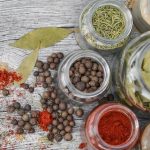Hayfever, also known as allergic rhinitis, is a common condition that affects millions of people worldwide. It is caused by an allergic reaction to pollen, dust mites, animal dander, and other environmental allergens. The symptoms of hayfever include sneezing, runny nose, itchy eyes, and congestion.
While there are many over-the-counter medications available to treat hayfever symptoms, natural remedies can be just as effective and have fewer side effects. In this article, we will explore the benefits of natural remedies for hayfever and how they can help alleviate symptoms.
What is Hayfever?
 Hayfever is an allergic reaction to environmental allergens such as pollen, dust mites, and animal dander. When these allergens enter the body, the immune system produces histamine, which causes inflammation in the nasal passages and eyes. This inflammation leads to the symptoms of hayfever such as sneezing, runny nose, itchy eyes, and congestion.
Hayfever is an allergic reaction to environmental allergens such as pollen, dust mites, and animal dander. When these allergens enter the body, the immune system produces histamine, which causes inflammation in the nasal passages and eyes. This inflammation leads to the symptoms of hayfever such as sneezing, runny nose, itchy eyes, and congestion.
Common causes of hayfever include seasonal changes, exposure to environmental allergens such as pollen or dust mites, and genetics. While hayfever is not a life-threatening condition, it can be very uncomfortable and affect a person’s quality of life.
Benefits of Natural Antihistamines
Antihistamines are medications that block the effects of histamine in the body. They are commonly used to treat hayfever symptoms such as sneezing, runny nose, and itchy eyes. While synthetic antihistamines are effective at relieving symptoms, they can also cause side effects such as drowsiness and dry mouth.
Natural antihistamines are a safer alternative to synthetic ones. They work by blocking the production of histamine in the body without causing side effects. Some examples of natural antihistamines include quercetin, vitamin C, and stinging nettle.
Foods that Help Combat Hayfever Symptoms
Certain foods have natural antihistamine properties and can help alleviate hayfever symptoms. These foods include onions, garlic, ginger, and turmeric. Onions and garlic contain quercetin, a natural antihistamine that helps reduce inflammation in the body. Ginger and turmeric are also anti-inflammatory and can help reduce the symptoms of hayfever.
In addition to these foods, it is important to eat a healthy diet rich in fruits and vegetables to support the immune system. A healthy immune system can better fight off allergens and reduce the severity of hayfever symptoms.
Herbal Remedies for Hayfever
Herbs have been used for centuries to treat various ailments, including hayfever. Some herbs have antihistamine and anti-inflammatory properties that can help alleviate hayfever symptoms. These herbs include butterbur, chamomile, and elderflower.
Butterbur is a natural antihistamine that has been shown to be effective at reducing hayfever symptoms. Chamomile has anti-inflammatory properties that can help reduce inflammation in the nasal passages and eyes. Elderflower is another herb that has been used for centuries to treat hayfever symptoms.
Essential Oils for Hayfever
Essential oils are concentrated plant extracts that have many therapeutic benefits. Some essential oils have antihistamine and anti-inflammatory properties that can help alleviate hayfever symptoms. These oils include lavender, peppermint, and eucalyptus.
Lavender oil has anti-inflammatory properties that can help reduce inflammation in the nasal passages and eyes. Peppermint oil is a natural decongestant that can help relieve congestion caused by hayfever. Eucalyptus oil is another natural decongestant that can help open up the airways and reduce congestion.
Homeopathic Remedies for Hayfever
Homeopathy is a natural form of medicine that uses highly diluted substances to stimulate the body’s natural healing process. Homeopathic remedies for hayfever include allium cepa, natrum muriaticum, and sabadilla.
Allium cepa is made from onions and can help relieve symptoms such as sneezing and runny nose. Natrum muriaticum is made from salt and can help relieve symptoms such as watery eyes and congestion. Sabadilla is made from the seeds of a plant and can help relieve symptoms such as sneezing and itchy nose.
Lifestyle Changes to Reduce Hayfever Symptoms
In addition to natural remedies, there are lifestyle changes that can be made to reduce hayfever symptoms. These include avoiding exposure to environmental allergens, using air filters in the home, and keeping windows closed during peak pollen season.
It is also important to stay hydrated and get enough rest to support the immune system. Regular exercise can also help reduce inflammation in the body and improve overall health.
Hayfever is a common condition that can be very uncomfortable. While there are many over-the-counter medications available to treat hayfever symptoms, natural remedies can be just as effective and have fewer side effects.
Natural antihistamines, foods, herbs, essential oils, homeopathic remedies, and lifestyle changes can all help alleviate hayfever symptoms as can hypnosis for hayfever. Before turning to synthetic medications, it is worth trying these natural remedies to see if they work for you.








